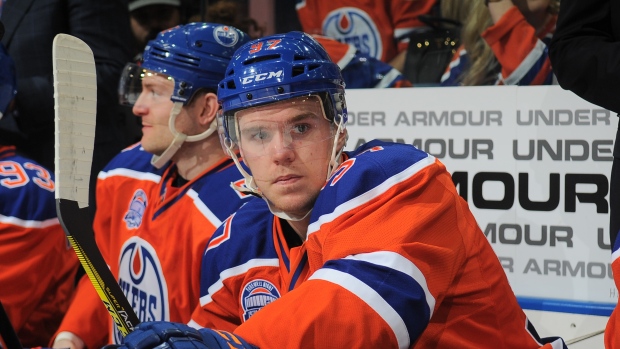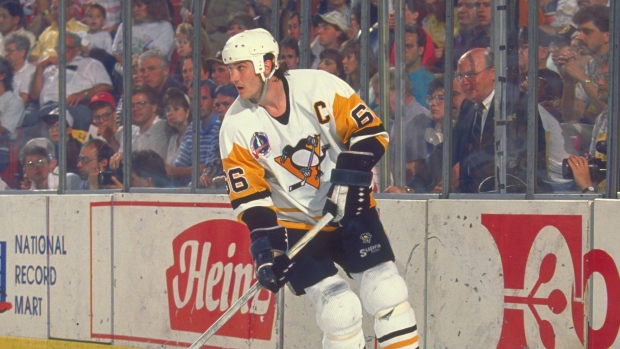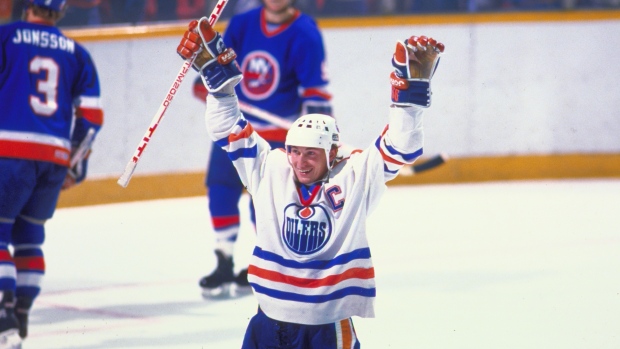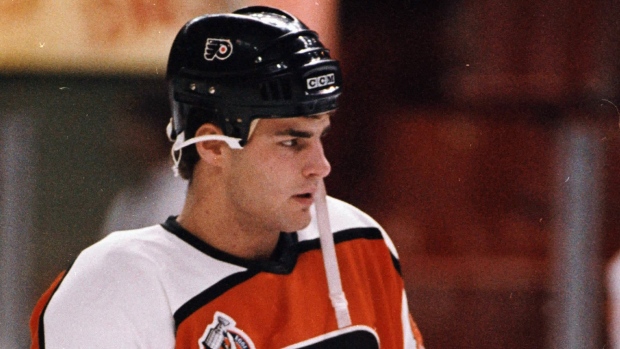Sep 7, 2016
What to expect in McDavid's sophomore season?
What does Connor McDavid have in store for his second act? McDavid’s rookie season was limited to just 45 games because of a broken collarbone incurred in late November. Still, McDavid managed 16 goals and 32 assists. Let’s take a look at other so-called generational players and what they did in their first two seasons.
TSN.ca Staff

What does Connor McDavid have in store for his second act?
As McDavid prepares to compete for Team North America at next week’s World Cup of Hockey in Toronto, the 19-year-old native of nearby Richmond Hill is expected to take the next step in his nascent National Hockey League career with the Edmonton Oilers when the season gets underway next month. Not only is McDavid looked at to continue his personal progression, but Oilers fans are hopeful that this is finally the year their young team will return to the postseason after 10 years in the wilderness.
McDavid’s rookie season was limited to just 45 games because of a broken collarbone incurred in late November. Still, McDavid managed 16 goals and 32 assists. His 1.07 points per game was third best in the league among qualified skaters behind only Art Ross Trophy-winner Patrick Kane of the Chicago Blackhawks and the runner-up, Dallas Stars forward Jamie Benn. Prorated over 82 games, McDavid’s numbers projected to 88 points (30 goals and 58 assists). That would have put him third in scoring (behind only Kane and Benn) and 11 points better than the Blackhawks’ Artemi Panarin – last season’s Calder Trophy winner - for the rookie scoring lead. McDavid’s projected 88 points would have been the highest rookie scoring total since 2005-06, when Alexander Ovechkin tallied 106 and Sidney Crosby had 102.
Considering McDavid’s prodigious talent, let’s take a look at other so-called generational players and what they did in their first two seasons. Obviously, it’s difficult to compare players through different eras under altered rules and disparate styles of play, but it’s nonetheless interesting to chart McDavid’s development against those who preceded him.
--
Sidney Crosby

SIDNEY CROSBY
| YEAR | GP | G | A | PTS | TOI |
|---|---|---|---|---|---|
| 2005-06 | 81 | 39 | 63 | 102 | 20:08 |
| 2006-07 | 79 | 36 | 84 | 120 | 20:46 |
Sid the Kid, also 19, showed the type of sophomore growth envisioned by the Pittsburgh Penguins when they selected him with the first overall pick in the 2005 NHL Entry Draft. While his goal production dipped modestly, Crosby's points-per-game ratio jumped from 1.26 to 1.52 in just under 40 seconds more ice time a night. Crosby would win the Hart and Art Ross Trophies that season, but perhaps more importantly, the Penguins reached the postseason for the first time in five years. The next year, they reached the Stanley Cup final and in 2009, they won the Stanley Cup.
--
Mario Lemieux

MARIO LEMIEUX
| YEAR | GP | G | A | PTS | TOI |
|---|---|---|---|---|---|
| 1984-85 | 73 | 43 | 57 | 100 | N/A |
| 1985-86 | 79 | 48 | 93 | 141 | N/A |
Sticking with the Penguins, we turn to another first overall pick (1984) and Mario Lemieux. Like Crosby after him, Lemieux's growth in his second campaign was pronounced. Lemieux's already absurd 1.37 PPG jumped to 1.78. Lemieux finished second in scoring to Wayne Gretzky (who happened to set the all-time points record that year with 215), but did come away with the Lester B. Pearson Award, given to the league's most valuable player as judged by his fellow players. With thanks in large part to Lemieux's play, the Pens' point total rose from 53 to 76 that year, but they still missed out on a playoff spot. Five years later, though, things got very good with the first of back-to-back Stanley Cup triumphs.
--
Wayne Gretzky

WAYNE GRETZKY
| YEAR | GP | G | A | PTS | TOI |
|---|---|---|---|---|---|
| 1979-80 | 79 | 51 | 86 | 137 | N/A |
| 1980-81 | 80 | 55 | 109 | 164 | N/A |
Because it's the Oilers, the comparisons to Gretzky were inevitable for McDavid, but the Great One is a bit of a special case. His true rookie year was spent in the World Hockey Association, so his first two NHL seasons (also the Oilers' first two) were actually his second and third professional years. But like Crosby and Lemieux, Gretzky's maturation in his second season was obvious. At age 20, Gretzky's PPG went from 1.73 to an eye-popping 2.05. Gretzky would claim the Art Ross, Lady Byng and the Hart Trophy - his second straight - that season. As for Gretzky's team, the Oilers experienced modest growth themselves that season, increasing their point total from 69 to 74 and winning their first-ever playoff series. Two years later, the Oilers would reach the Stanley Cup Final and go on to win five Cups in the next seven years.
--
Perhaps, there's one more first-overall pick worthy of a comparison.
Eric Lindros

ERIC LINDROS
| YEAR | GP | G | A | PTS | TOI |
|---|---|---|---|---|---|
| 1992-93 | 61 | 41 | 34 | 75 | N/A |
| 1993-94 | 65 | 44 | 53 | 97 | N/A |
It's easy to forget that Eric Lindros was once earmarked as the next great NHL star before injuries derailed his chance to be the generational talent he was capable of becoming. He still put together a Hall of Fame career, but never reached the heights hit by Crosby, Lemieux and Gretzky. Like McDavid, Lindros' debut campaign was marred by injury, yet the Big E still averaged 1.23 PPG. The following season, he still missed 19 games, but Lindros' play took it to the next gear. His PPG rose to 1.49 and he finished 11th in scoring. The Flyers - after trading a boatload of assets to the Quebec Nordiques for Lindros' rights - still struggled mightily, though, finishing sixth in the Atlantic Division and missing the playoffs for a fifth consecutive season. But better times were ahead. The following season kicked off a streak of 11 consecutive postseason appearances - including a trip to the Stanley Cup Final in 1997 - with Lindros claiming the Hart Trophy.

